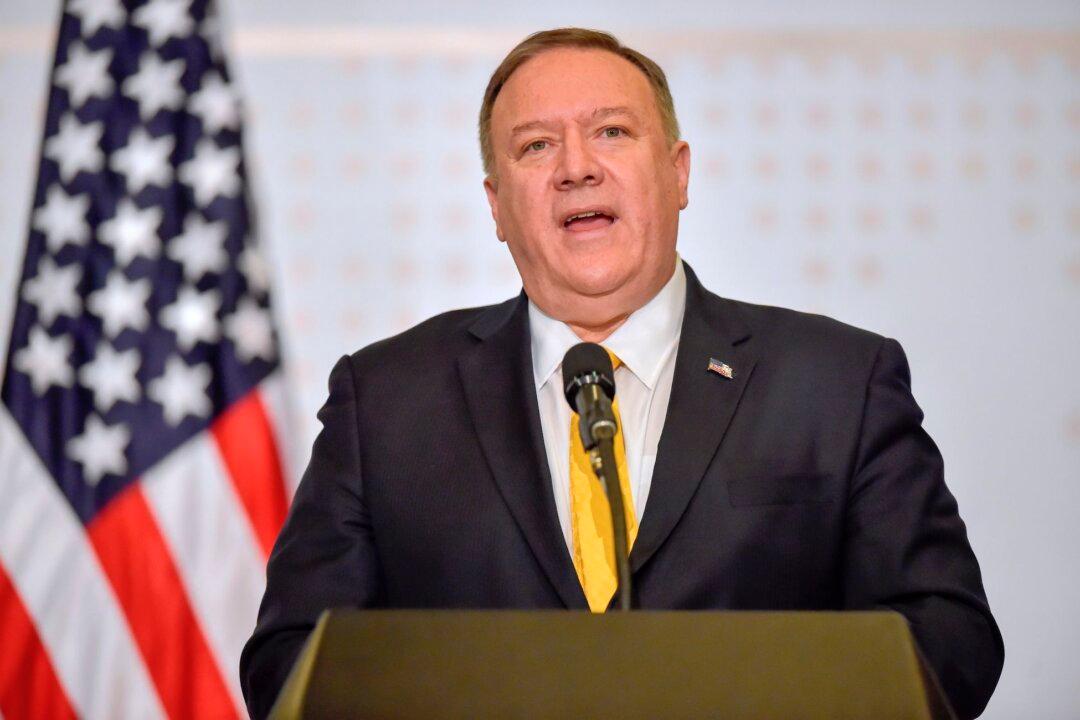At a meeting of governors of U.S. states and territories, Secretary of State Mike Pompeo warned about China’s influence seeping into local politics.
“It’s [China] assessed our vulnerabilities, and it’s decided to exploit our freedoms to gain advantage over us at the federal level, the state level, and the local level,” Pompeo said during a Feb. 8 speech at the National Governors Association meeting held in Washington.




